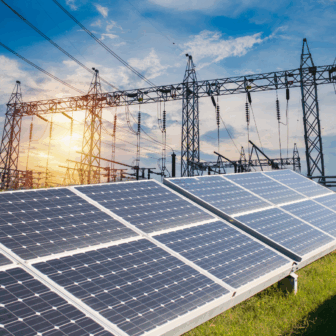The past three weeks have been busy ones in the climate movement. Right here in Virginia and Maryland, citizens have been fighting to pass critical clean energy legislation even as we fight to stop a potential climate disaster in our backyard — the proposed Cove Point liquefied natural gas export facility. Across the country, students, farmers, and environmentalists continue upping their game to stop Keystone XL, as the Obama administration’s decision time nears. And we’ve seen a show of support from U.S. senators, who delivered an all-nighter of speeches about the urgency of climate action.
We begin with updates from the Cove Point fight, which has moved into high gear with a series of protests leading to peaceful arrests across the state. On February 27th, four activists were arrested for blocking the entrance to the Allegany County Courthouse in Cumberland. They were released a short time later with misdemeanor charges. This was the first time any Cove Point protest had ended in an arrest, and the media took notice. The Associated Press picked up the story and it made impressions around the country.
That weekend, the Maryland Public Service Commission held a public hearing in Lusby about the Cove Point project. After seven hours of testimony, the PSC had heard from 85 speakers, the majority of whom spoke in opposition to Cove Point gas exports. In a setback the day before the hearing, a state appeals court ruled in Dominion’s favor in the company’s ongoing legal battle with the Sierra Club over its right to export gas from Cove Point. But Dominion still needs a series of permits, including from the PSC, before it can move forward with any construction. The company will almost certainly face additional legal challenges, too. To have an impact right now and add your voice to the fight, submit a public comment to the Maryland Public Service Commission. They need to hear from you that Dominion’s Cove Point project is NOT in the interest of Maryland’s public — and comments are due by April 2nd.
The week following the hearing, four more activists were arrested in a protest in Frederick. They carried signs reading, “FERC: We Demand Justice for Myersville,” and, “FERC: Don’t Bully Frederick County,” while chanting against both Cove Point and Dominion’s plan to build a compressor station less than a mile from the elementary school in nearby Myersville, MD. (You can submit a comment to the Maryland Department of the Environment here to let them know that a compressor station polluting the air of Myersville’s kids is not acceptable.) Like in Cumberland, the “Frederick Four” were released after a short time with misdemeanor citations.
Senators Cardin and Mikulski have taken notice of the momentum building against Cove Point. They wrote a letter last week to the Federal Energy Regulatory Commission calling on them to respond promptly to a request from environmental, faith, health and community leaders to hold statewide public meetings about the proposed project. FERC has yet to respond to their request.
This past Wednesday, however, FERC “announced it will issue its environmental assessment on the proposed Dominion Cove Point liquefied natural gas export project May 15 and will issue its decision by Aug. 31.” A coalition of Maryland faith, health, and environmental groups responded to FERC’s announcement, calling it “a slap in the face to citizens and leaders across Maryland who have repeatedly called for a full Environmental Impact Statement (EIS)—a type of review most protective of public health and safety and customary for a polluting project as huge as Dominion’s.”
The next day, six more protesters were arrested in Calvert County as they peacefully protested the facility outside the courthouse in Prince Frederick. The activists specifically highlighted recent revelations that a six-story high and three-quarters of a mile long wall that Dominion plans to build around its facility would also be part of an apparently untested system to contain potential releases of flammable vapor clouds. They were held for over eight hours before they were finally processed and released with misdemeanor charges.
Protests have also been happening across the country in the final weeks before President Obama makes his decision about the Keystone XL pipeline. The project, which has been stirring up fierce resistance for more than three years, would transport filthy, climate polluting tar sands from Alberta through the American plains, to be exported from the gulf coast. However, citizens from every walk of life and all along the political spectrum see the pipeline as a dire threat to our climate and way of life. They point out that the tar sands oil moving through the pipeline would be shipped overseas and have little to no impact on American energy security. Additionally, the jobs estimates for the project are thought by many, including President Obama, to have been overstated.
The deadline to submit public comments to the State Department has passed, and an estimated 2 million-plus comments against the project were delivered last Friday.
Some of the vocal student activists opposed to the plan converged on the White House on March 1st for XLDissent, and 398 youth were arrested in what is being called the largest youth sit-in of this generation. The protests aren’t just coming from students; a coalition of tribal communities, farmers, and ranchers, Canadian First Nations and others are coming together in Washington for “Reject and Protect,” a week of actions to send a clear message to President Obama: Reject Keystone XL now. You can sign up to join Reject and Protect here.
A number of United States senators took up the anti-Keystone rallying cry earlier this week during #Up4Climate, a night of floor speeches about the urgency of action to address climate change. Thirty-eight senators took the floor, including Virginia’s Tim Kaine and Maryland’s Ben Cardin. Sen. Kaine emphasized moving forward to a cleaner energy future, saying, “We can solve the problem of climate change for the good of the economy and the good of the planet. The story of American innovation is a story of solving the hard problems and I know we can solve this one.” You can read Senator Kaine’s full remarks here. Senator Cardin emphasized that federal facilities “are being jeopardized because of the climate change that’s occurring in our communities.” He also highlighted the economic benefits of growing clean energy, emphasizing that, “Green energy will give us more jobs than the fossil fuel industry, and we need good paying jobs, and we can leave our children and grandchildren a cleaner planet and a better future.” You can watch his full speech here.
The legislative session is over in Virginia, and we made some great progress. Governor McAuliffe officially signed repeal of the hybrid tax into law two weeks ago. As of July 1st, this arbitrary and unfair tax on Virginians doing their part to reduce carbon pollution will be wiped off the books. Two other significant clean energy bills — to eliminate tax barriers to solar power development (SB 418/HB 1239) and to fix a major loophole in Virginia’s renewable energy law (SB 498/HB 822) — are on their way to the governor’s desk for his signature. If you’re a Virginian, click here to thank your legislators and Governor McAuliffe for their action this session.






